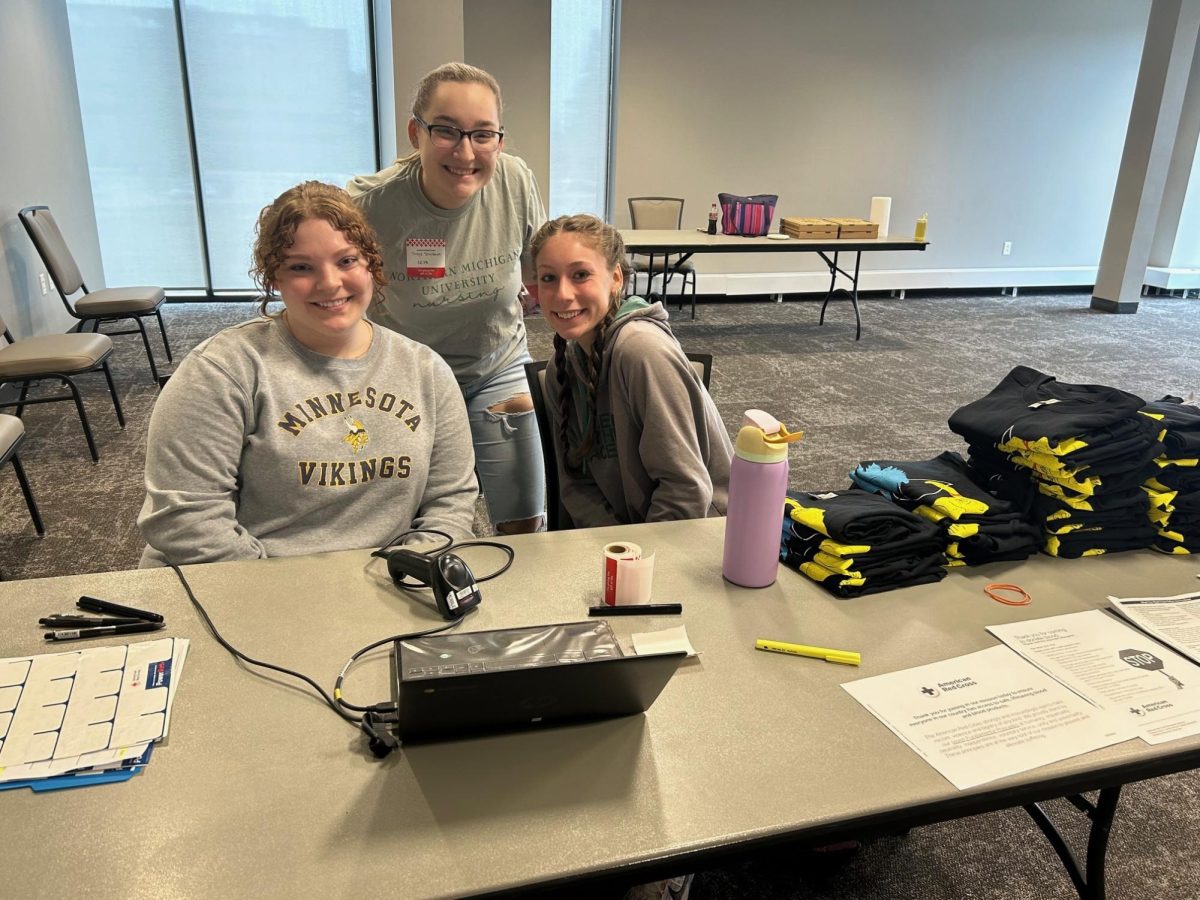From student loans to mounting credit card debt to shopping E-Bay in their pajamas or pimping out their ride, students are all too eager to part ways with hard-earned money. Whether the cash is the fruit of their own labors or the generosity of mom and dad, students fall prey to the notion that they can spend with impunity.
So, while their summer job may have earned them a sound system capable of shaking plaster off of walls , students scramble to pay the bills and subsist on nickel-and-dime diets of Ramen, Easy Mac and cheap beer. Thoughts of mounting debt are tucked into the back of their minds, somewhere between last week’s episodes of “American Idol” and “Grey’s Anatomy.”
Having thousands of dollars in loans that don’t have to be paid back until graduation offers students a false feeling of financial invulnerability. It is a classic example of what happens when someone is offered the option to buy now and pay later.
Scott Thom, assistant director of the NMU Financial Aid Office, said this mindset leads to people devaluing their loan money and not understanding how hard they’ll have to work to pay it back.
Any financial doomsayer would advise that this is not the wisest way to go. There is always the temptation for students to max out their loans and live above their means. The important thing to remember about loans is that the borrower must pay back every penny plus interest. Thom said that he often advises students to live like a college student while they’re in college so that they won’t have to live like one when they get out of school.
“Ramen is cute when you’re in your 20’s,” he said. “It’s not so cute when you’re out of college and having your wife and kids crack the noodles for you.”
Even beginning doctors and lawyers can’t pay off their leftover bills and loans in one fell swoop after their schooling is done, and most of us will fall considerably short of a doctor or lawyer’s salary.
Youngmoney.com, a Web site devoted to a variety of financial matters that young people may come across, from starting up their own businesses to avoiding the vice grip of debt, offers tips for those students who’ve made the decision to start planning for the future by stretching their dollars now.
The first step is to estimate living expenses for the next 90 days and compare that amount to how much money is actually pulled in. Living expenses include rent, utilities, cell phone bills, gas, groceries and entertainment. Miscellaneous money should also be set aside.
Once the expenses are figured, this money should be deposited into a bank account that allows easy access to the funds. An important thing to remember is to always spend less than you earn. Having a kickass bar or a massive plasma screen television just isn’t that impressive if there’s no house to surround them.
Another thing to consider is that it’s never too early to start saving money. Even tucking away a small percentage of overall savings into a 90-day Certificate of Deposit (CD) will add up, according to financial planner Matthew Brandeburg in his article “Want to Keep More Money in Your Pocket” Youngmoney.com.
Also, the CD will not allow the invested money to be withdrawn until the end of the 90-day period, which will keep it out of impulsive hands.
Saving some of their summer earnings or wisely spending their student loan money will go a long way to making life easier when that time comes.

























